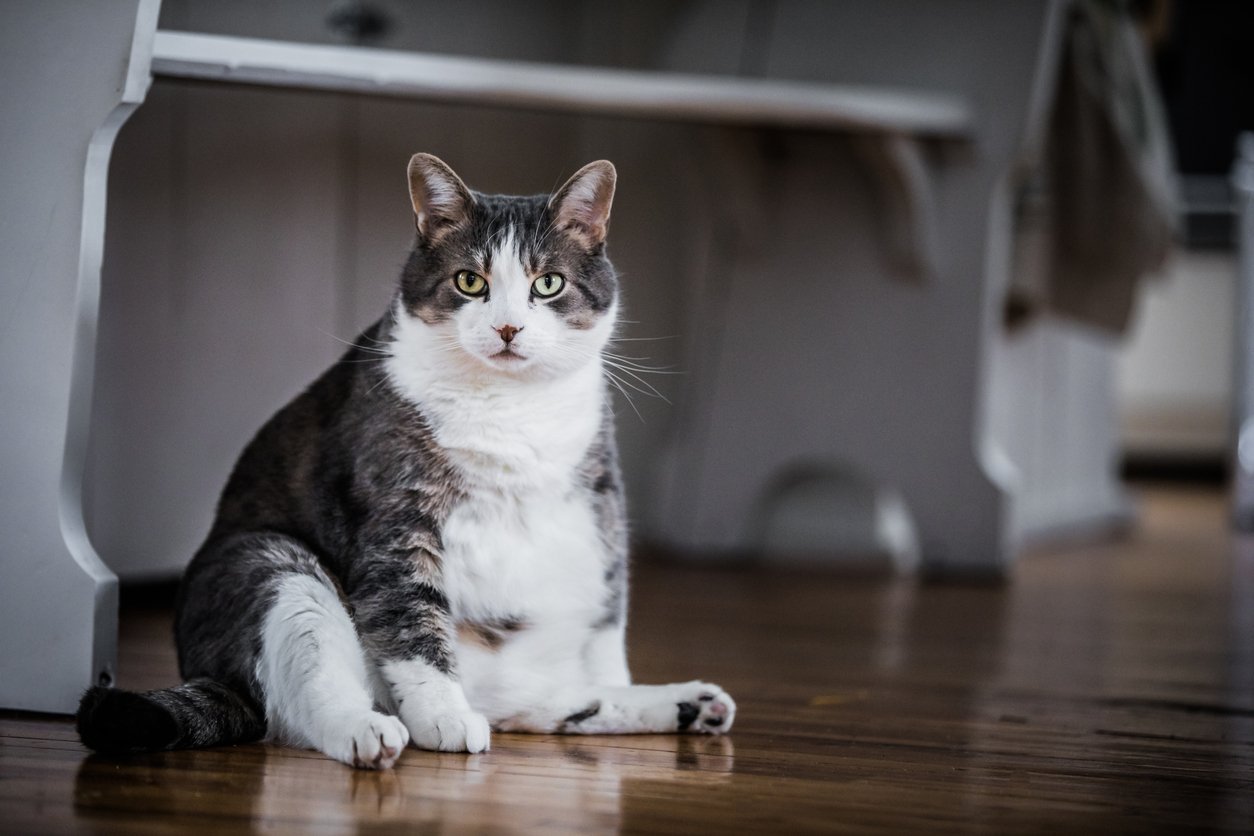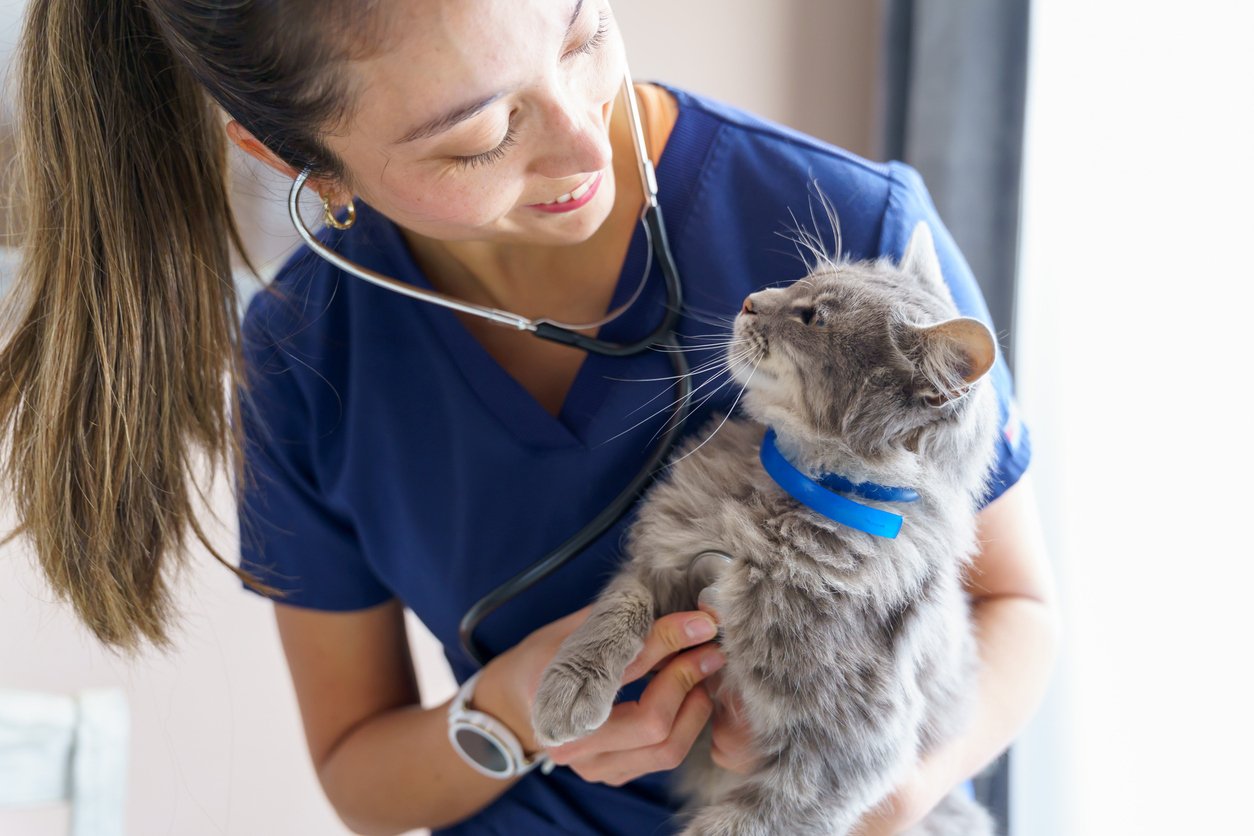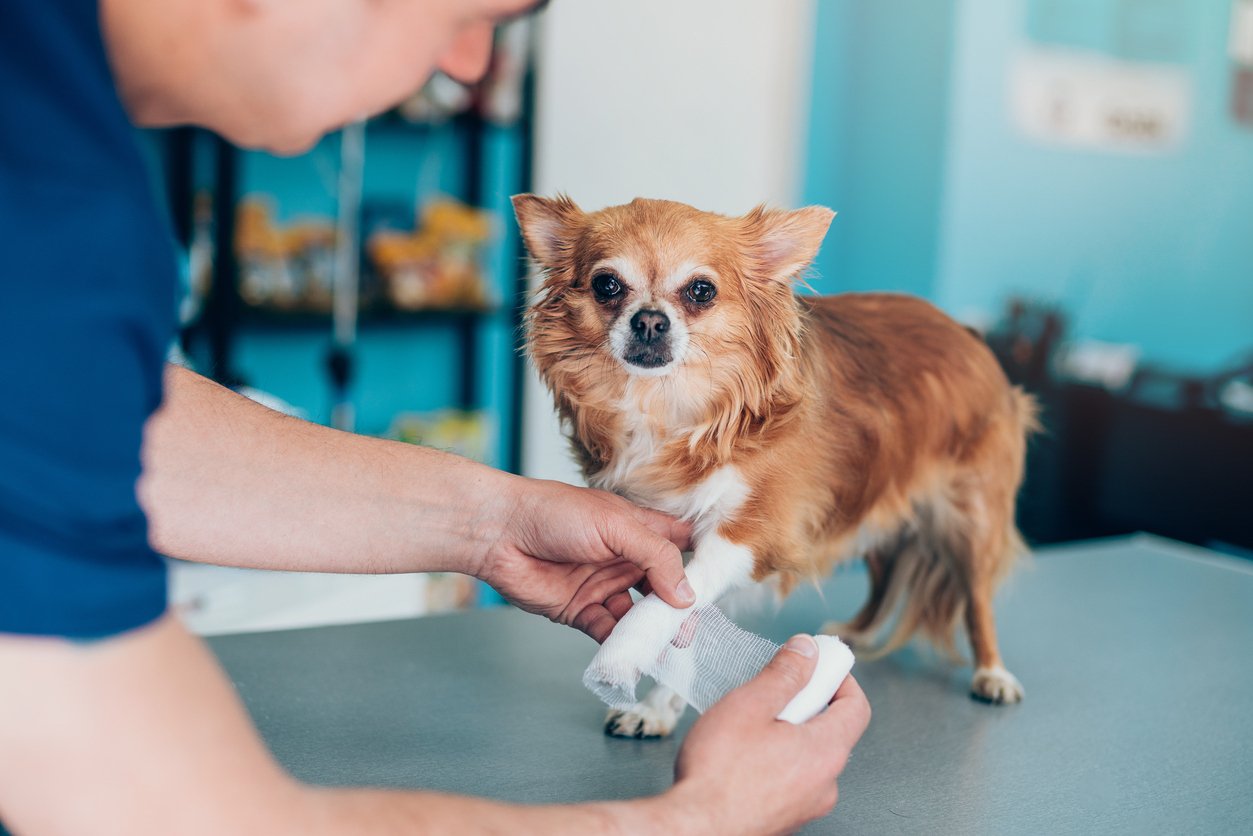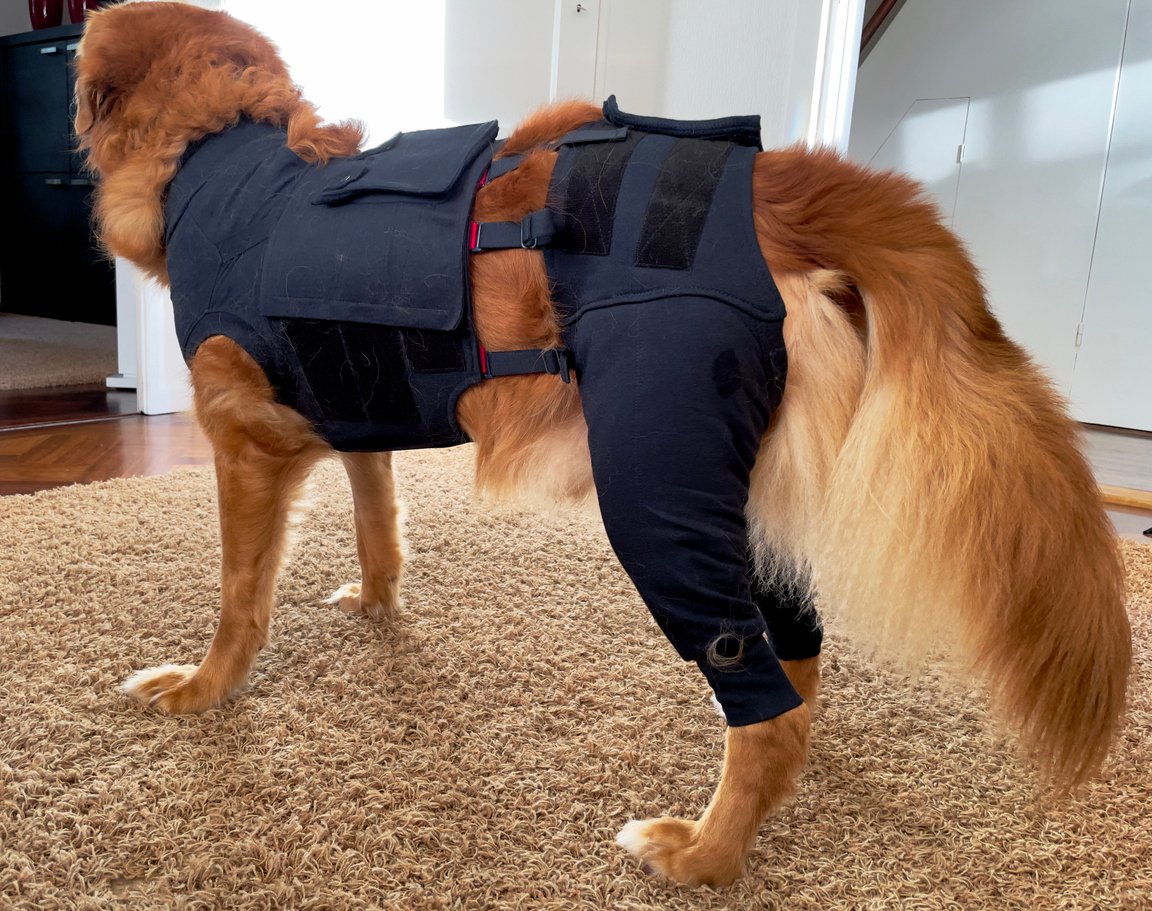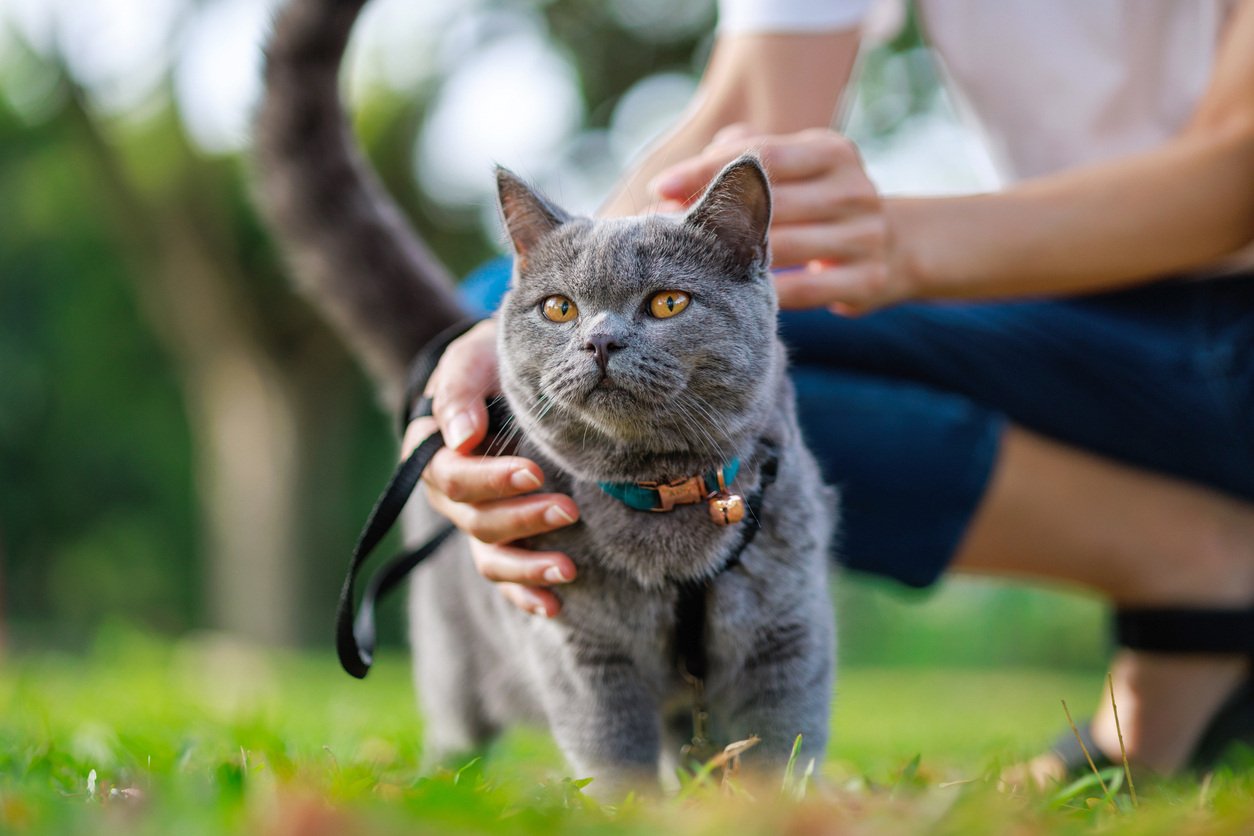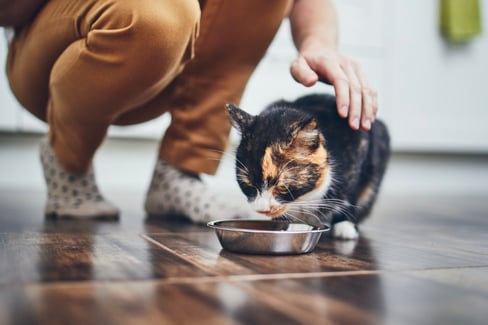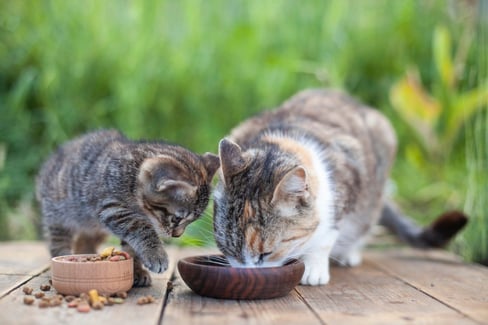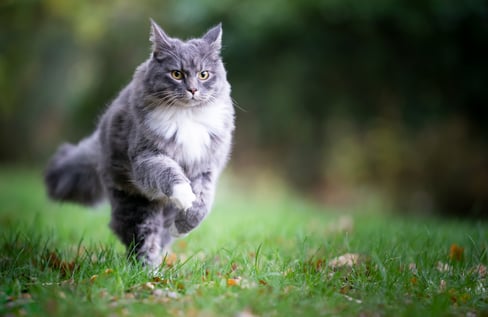Table of Contents
Aches. Pains. Slowing down.
These are all things your senior cat can experience as they age.
But you want the very best life for your cat, even if they’re getting up there in age. You want to see them run, play, and climb into that favourite spot on top of the bookshelf.
The thing is, senior cats have different needs than they used to, and that means you need to approach their wellness differently, too.
In this post, we’re going to break down at what age is a cat a senior, the most common senior cat health problems, as well as senior cat supplements that can help ease the troubles associated with ageing.
What is a Senior Cat?
Defining when is a cat considered a senior varies from feline to feline. Like people, cats experience aging in their own way. Most cats start experiencing changes by the time they’re 12 years old, but some start as early as seven.
Overall, you should start watching for signs of senior cat health issues around their sixth or seventh birthday and begin working with your vet to make sure your kitty is going to live a long and healthy life.
But what exactly do these changes look like?
Changes to look for as your kitty becomes a senior cat include:
- Becoming less active and playful
- Sleeping more
- Gaining or losing weight
- Having trouble getting to their favourite spots around the home
- Grooming less often and less thoroughly
- General confusion, excessive meowing, and disorientation
No matter what you do, getting older is a natural process that can’t be stopped. Although aging brings many changes, it’s not a disease. But despite the fact that many age-related conditions aren’t curable, you can often control them.
You should focus on three things for a healthy and happy senior cat:
- Reduce health risks and injury by providing a safe, accessible environment that may include modifications such as pet stairs or platforms for easier jumping and climbing
- Detect disease early so you can correct or delay the progression of a condition appropriately
- Maintain each of your cat’s key body systems, including bones and joints, skin, digestion, etc.
By ensuring you are always on the lookout for a senior cat health problem, and preparing your cat to fight off degenerative diseases like arthritis, your cat will be more likely to live a longer, healthier life.
Common Senior Cat Health Issues
The old saying about “knowing your enemy” is certainly true when it comes to knowing which common health issues could bother your precious feline as they get older.
That’s why we’ve gathered up 5 of the most common senior cat issues so you can be prepared to fight them off with ninja-like precision.
Ready? Let’s get into it!
Health Issue #1: Arthritis
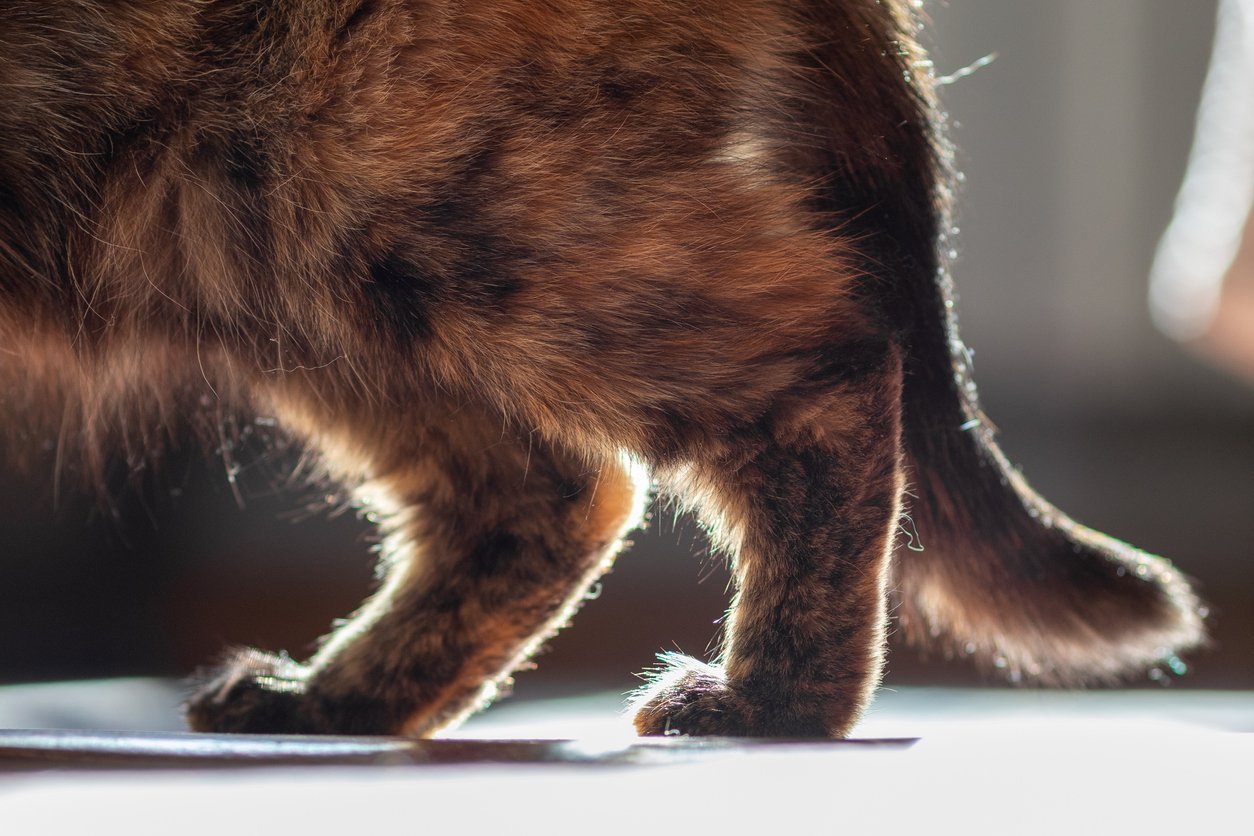
The first issue on deck is arthritis. Cat arthritis, also known as a degenerative joint disease (DJD), impacts many aspects of your kitty’s life and can be caused by wear and tear, injuries, and trauma. This is one of the most common and wide-ranging diseases cats can encounter in their aging lives. It can impact key limbs and joints such as the shoulders, hips, elbows, knees, and ankles and make getting around harder for your feline friend, among other effects.
Specifically, cat arthritis impacts cartilage. The cartilage between the bones in a cat’s joints helps cushion movement, just like in humans’ own bodies. Without this cushion, your cat’s bones would rub painfully together and make movement nearly impossible. As cats get older, that cartilage (and therefore the cushion) starts to degrade, causing inflammation and pain.
That sounds pretty clawful if you ask us.
That’s why it’s so important to make sure you know how to spot this disease, how to treat it, and possibly most important of all — how to help prevent this painful condition and its symptoms.
Information about the causes, impacts, as well as prevention and treatment of arthritis in senior cats can be found in the table below.
| Causes | Symptoms & Signs | Prevention & Treatment |
|
|
|
Health Issue #2: Obesity
We all love giving our kitties an extra treat. They’re like furry family members, after all!
The thing is, an overweight kitty can end up being a senior cat with health problems. From joint health struggles to diabetes to hip dysplasia, obesity can both cause and exacerbate health conditions typically associated with aging kitties.
Domestic cats are likely to exhibit obesity which is defined as a weight increase of 20% or more above average weight. Your cat’s check-ups at the vet should help identify weight guidelines for your kitty. If you’re between vet appointments, take notice of the signs of cat obesity and call your vet to help build a solution.
Get the fast facts on how obesity impacts your senior cat in the table below.
| Causes | Symptoms & Signs | Prevention & Treatment |
|
|
|
Health Issue #3: Kidney Disease
Just as in humans, our kitties’ kidneys perform essential functions. With age, those functions can begin to fail. Senior cats are more likely to suffer from chronic renal failure (CRF) or chronic kidney disease (CKD) than kittens, so maintaining kidney health as your senior cat ages is crucial to good overall health. After all, these organs function primarily to remove waste materials from the bloodstream, maintain potassium and sodium levels, conserve water, and produce urine.
Here’s the thing: Our cat’s kidneys have plenty of spare capacity, so at least two-thirds (67% to 70%) of the kidneys must be dysfunctional before any signs appear. Often, this means the kidney damage has been going on for a long time (chronic) until it finally fails or your cats begin to show symptoms. So you need to be eagle-eyed and alert and ready to fight off further kidney damage.
In the table below, we’ve given you the fast facts about kidney failure and disease so you can make sure your kitty is feeling their absolute best as they become a senior cat.
| Causes | Symptoms & Signs | Prevention & Treatment |
|
|
|
Health Issue #4: Dental Issues
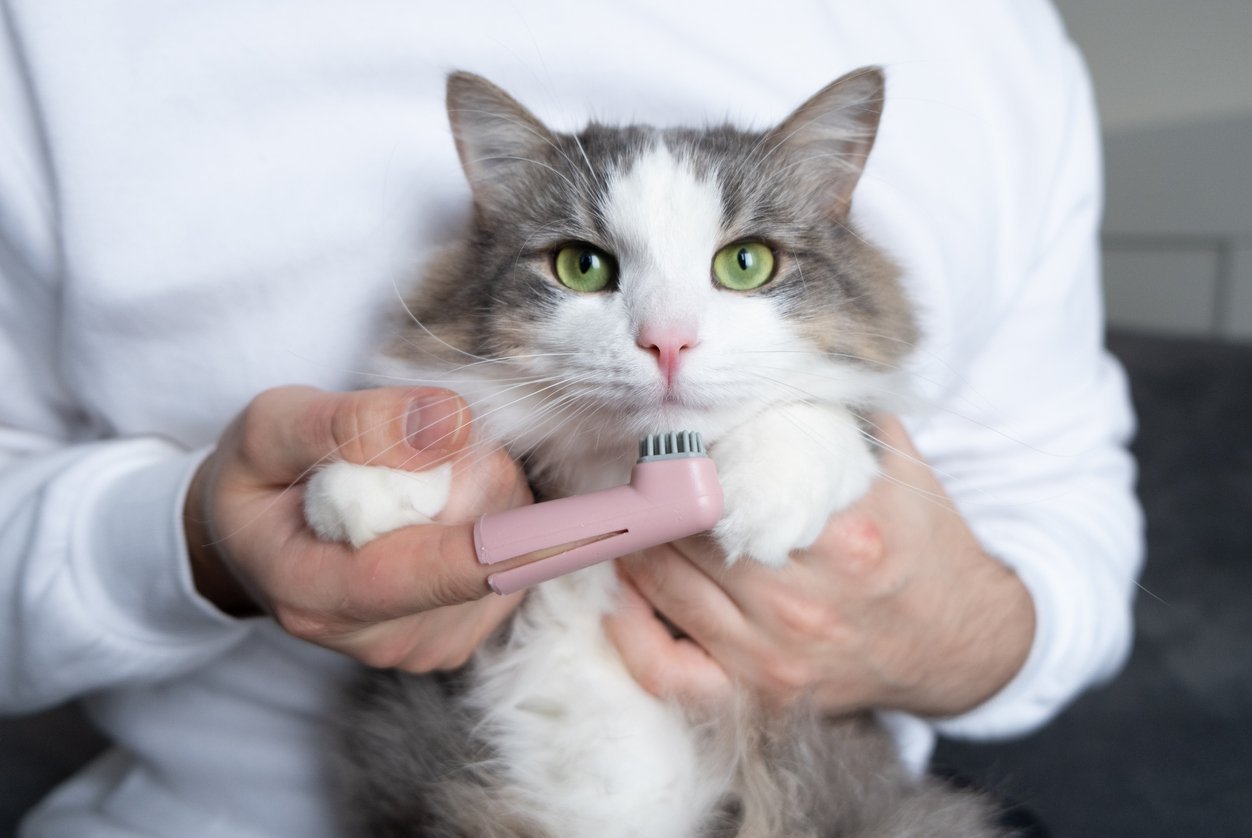
Our cat’s dental health is incredibly important, bad breath can often be the first sign that something is going on with their teeth, but it could also be a sign of another health issue. . Bad breath can be caused by anything from periodontal disease, kidney disease, lung disease, to diabetes, skin disease or trauma to the mouth. Periodontal disease, though, is the primary mouth-related condition to look out for.
This preventable disease can cause pain, tooth loss, and infection that can even spread to other organs if left untreated. When your cat’s teeth don’t get cleaned regularly, a film called plaque forms. As the plaque thickens and hardens, it attracts more plaque and later, gingivitis. With gingivitis, cats’ gums will swell, eventually causing tissue and bone loss.
In order to avoid the loss of teeth or other serious health outcomes, you’ll want to be aware of the symptoms and prevention of periodontal disease for senior cats, as outlined in the table below.
| Causes | Symptoms & Signs | Prevention & Treatment |
|
|
|
Health Issue #5: Skin and Coat Problems
Your senior cat can sometimes look a little dishevelled in their old age — and it’s not because they’ve given up on themselves. A lot of the time, your cat can’t groom themselves the same way they did as kittens, which can lead to problems with their skin and coat. But sometimes skin and coat problems can be caused by other conditions not related to grooming.
When your cat has trouble with its skin and coat, it can lead to issues like infections, which is pawsitively terrible news for your kitty.
That’s why we’ve gathered the key facts on the prevention, causes, symptoms, and treatment for this senior cat health problem in the table below.
| Causes | Symptoms & Signs | Prevention & Treatment |
|
|
|
Senior Cat Health Supplements Types
Whether you’re looking at cat supplements for treating specific health concerns or general support for your senior cats’ wellbeing, there are plenty of choices available.
We’ll cover the most popular kinds of supplements available and how they can help your senior cat in this section.
There are many supplements available for senior cats, including:
- Joint supplements
- Cat vitamins
- Cat probiotics
- Essential fatty acid supplements for cats
- Nutraceuticals
Let’s dig into each in greater detail to see how these supplements can help your cat.
Joint Supplements
It’s no secret that age brings aches and pains. The same is true for your cat. Many joint problems occur due to the natural degradation of cartilage over time. Cartilage is the connective tissue between the bones in your senior cat’s body and is basically the rubbery cushion your cat needs to move comfortably. Whether it’s arthritis, hip dysplasia, or other joint problems, senior cats are highly affected by the loss of cartilage and the associated pain and inflammation.
But how do you take this into account for prevention?
You can add a joint supplement to their diet.
Oftentimes, joint supplements contain compounds that help build cartilage to support your senior cat’s overall wellbeing and joint health, such as:
- Glucosamine: Help produce proteoglycans, which are like building blocks for your pet’s cartilage.
- Chondroitin: Inhibits the enzymes that destroy cartilage by keeping it from breaking down and deteriorating.
- MSM: Helps your cat’s body to produce more cortisol, which reduces joint inflammation.
- Hyaluronic Acid: Retains water, which helps lubricate joints and strengthen connective tissues, which reduces inflammation and arthritic pain.
Joint supplements like Integricare’s TRI-ACTA and TRI-ACTA H.A. help address symptoms and prevent further pain and discomfort for your kitty with the help of all of these key ingredients that support joint health for senior cats and kittens alike.
And you can rest easy knowing Integricare’s line of supplements contains no fillers and two types of glucosamine. Glucosamine hydrochloride and sulphate offer unique benefits and combined give your senior cat the best support as they grow older. Because glucosamine hydrochloride is highly bioavailable, your cat’s body can quickly utilize it. Glucosamine sulphate, on the other hand, helps produce collagen, which is an essential component of cartilage.
It’s good to know that each and every ingredient in your senior cat’s supplement is working to keep their joints healthy.
TRI-ACTA H.A. for Pets
Our maximum strength formula is optimally designed to accelerate the formation of cartilage, minimize inflammation, expedite the healing process, and improve joint conditions.
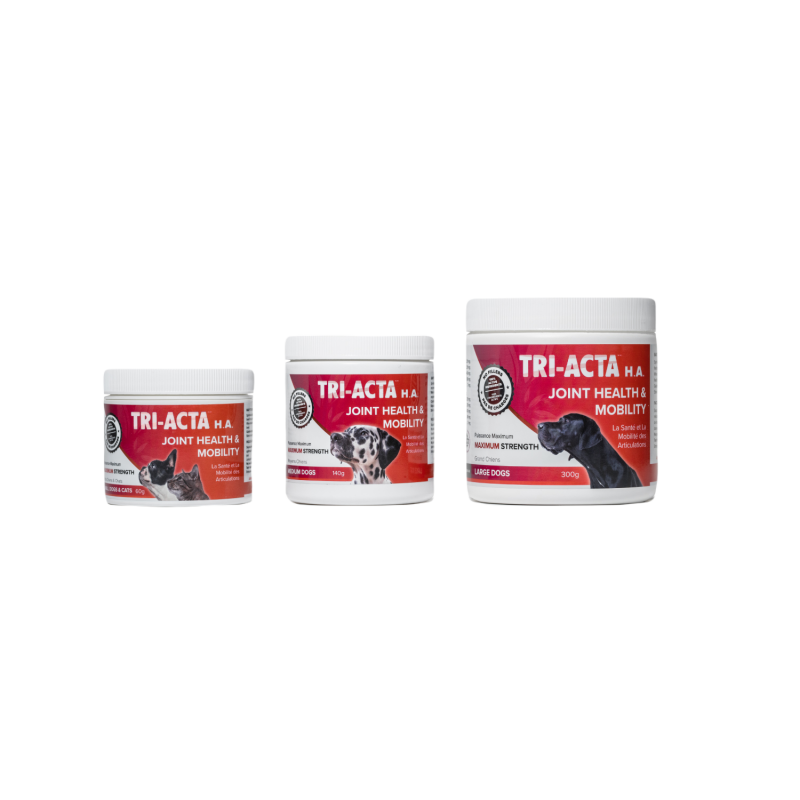
Cat Vitamins
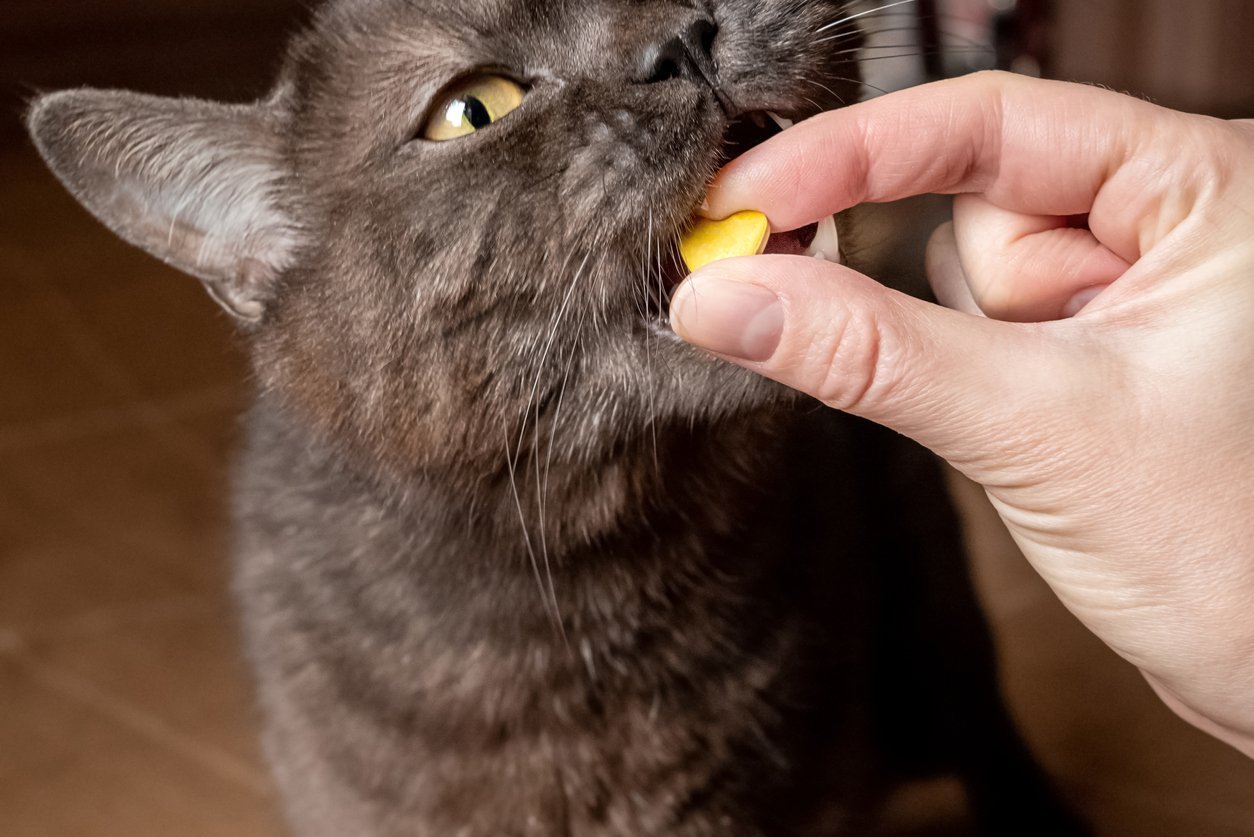
When we need to make up a shortfall in our diet or are in need of extra support as we age or otherwise, we take vitamins to feel better and support our wellbeing.
The same goes for our cats’ health. We can help make sure their wellbeing is taken care of and balance nutritional deficiencies that can be common as kitties age.
And with a pet supplement industry valued at over $636 million, there are plenty of cat vitamins and products available to choose from.
But what vitamins are essential to your cat’s health?
There are a few key elements to a cat’s diet, particularly in their senior years, that need to be met including:
- Vitamin A
- Vitamin D
- Vitamin E
- Vitamin K
- Thiamin
- Riboflavin
- Niacin
- Vitamin B12
You can look for single vitamins or a daily multivitamin if your ageing kitty needs more than one nutritional support.
If your cat is healthy, talk to your vet before trying supplements of any kind. An excess of certain vitamins and minerals can make them sick.
Cat Probiotics
Keeping cats’ digestive tracts balanced with the right bacteria is an effective way to keep them healthy. The easiest solution is to add probiotics to your cat’s diet-friendly bacteria that regulate digestion and overall health. In addition to treating or preventing a variety of illnesses and diseases, these handy live microbes can also help protect against them.
Senior cats particularly can suffer from tummy troubles, including conditions like IBD (inflammatory bowel disease). Probiotics can help keep their digestive health in check, which in turn, helps their overall quality of life.
But it’s not like you’re going to be able to feed your kitty human probiotics. That can be dangerous and do more harm than good. So you need to know exactly which probiotics would be best for your kitty, and how much.
Here are a few guidelines to keep in mind when shopping for a senior cat probiotic:
- The Bifidobacterium and Enterococcus families of bacteria are most effective and best for cats
- Cat probiotics are available as powders, pills, liquids, and in treat form. Opt for the formula with the least fillers, particularly in probiotic treats
- Search for a senior cat probiotic with the highest CFU (colony forming units) listed for the most positive effect
- Diversity in bacteria is also key for positive outcomes, so opt for a probiotic for senior cats that include more than one family of bacteria
Essential Fatty Acids Supplements
Inflammatory diseases, such as arthritis, allergies, cancer, kidney disease, heart disease, and cancer, can be prevented, delayed, or treated with omega-three fatty acids. Specifically, EPA and DHA are what cats need to feel their best. Cats are more in need of DHA than EPA; however, these essential fatty acids can be found in food made explicitly for senior cats and are often enough to provide all the fatty acids they need on their own.
But if you have a cat on the raw food diet or another specialty diet, you may want to speak to your vet about including essential fatty acid supplements in your senior cat’s diet as they might be missing out on these essential nutrients.
Nutraceuticals
As natural health supports designed for senior cats, nutraceuticals can help ease some of the problems ageing kitties deal with.
Pet owners may not immediately see the effects of nutraceuticals, since herbal supplements tend to have a more subtle effect on cats than other kinds of supplements. But over time, adding the right natural or herbal supplement can make a big difference.
Common nutraceutical herbs for senior cats include:
- Rosemary: Boosts appetite, memory, and fur growth
- Tumeric: An antioxidant that supports the GI system as well as prevents gastritis and arthritis symptoms
- Ginger: Helps settle stomachs and reduce nausea
- Milk thistle: Supports immunity, has anti-inflammatory properties and helps digestion, among other benefits
- Boswellia: Reduces pain and inflammation in joints, tendons, and ligaments
Nutraceuticals are often available as tinctures, but can also be found in powder or pill format. Always remember to contact your veterinarian first if you plan on introducing something new to your senior cat’s diet.
3 Best Cat Joint Supplements in the Market
Now that you’re an expert on what your senior cat needs and the types of supplements best for an ageing feline, we can get into the best joint supplements for a senior kitty that will help them remain young at heart well into their golden years.
Integricare
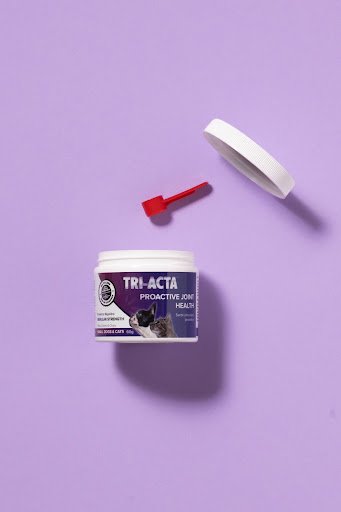
When it comes to taking good care of your senior cat’s joints, TRI-ACTA for pets is the best choice.
Now we may sound a little biased, but there’s a reason so many pet parents have trusted Integricare’s formulas for their furry family members for over two decades.
Integricare offers your senior cat high-quality ingredients in a dose that’s effective and safe. With no fillers in sight, and the backing of Health Canada as an approved Veterinary Health Product (VHP), you can trust our formula will help ease the aches and pains a senior cat so often has.
But what’s the difference between Integricare’s TRI-ACTA for pets and other joint supplements for senior cats?
We offer your senior cat the TRI-ACTA and TRI-ACTA H.A. advantage:
- 100% active ingredients in each formula
- Completely natural, pharmaceutical-grade ingredients
- Small, but therapeutic dosage means it’s easier to serve and more effective
- Economical, low cost per serving that can be adapted for dogs in the home, too
- Treats symptoms while addressing the underlying issue
With the inclusion of MSM, glucosamine, and chondroitin, as well as hyaluronic acid in our TRI-ACTA H.A. formula, your feline friend will be able to get pain relief as well as treat inflammation associated with arthritis and other joint conditions.
TRI-ACTA H.A. for Pets
Our maximum strength formula is optimally designed to accelerate the formation of cartilage, minimize inflammation, expedite the healing process, and improve joint conditions.

* Priced $23.99 – $79.99 CAD as of March 2022
Head to Tail Hip & Joint for Cats
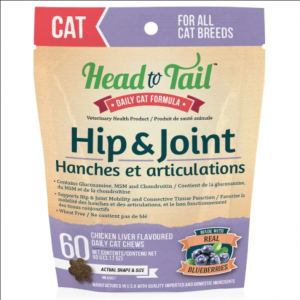
Containing glucosamine, MSM, and chondroitin, these Head to Tail Hip & Joint Treats for Cats are tasty flavoured treats aimed at helping joint mobility and tissues. These treats contain no wheat, which is nice to see from a treat-style supplement.
The one drawback with this kind of supplement for senior cats is that there are still a handful of fillers like brewer’s yeast and canola oil that we’d prefer not to see.
* Priced $16.99 CAD as of March 2022
NaturVet Hemp Joint Health Soft Chews for Cats
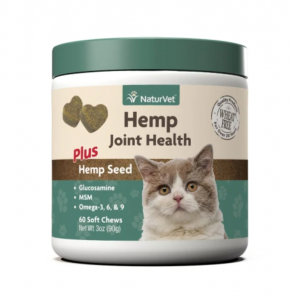
Containing a combination of glucosamine, MSM, and hemp seed, these NaturVet Hemp Joint Health Soft Chews for Cats are tasty little treats that should be easy to administer to your senior cat. This formula also contains antioxidants and omegas in addition to joint health ingredients.
Like any kind of supplement treat, these do have fillers like dried potato products and tapioca starch in the ingredients list. That means you are giving your cat lots of things they don’t need, and the dose itself will need to be larger in order to be truly effective.
* Priced $16.99 CAD as of March 2022
Start Taking Control of Senior Cat Health
With the information you need to make sure your senior cat has the best quality of life as they age in hand, you’re ready to take charge of their wellbeing.
You know they need the right diet, exercise, and care to feel their best. That includes feeding a joint supplement like Integricare’s TRI-ACTA. Joint supplements are simply one of the best ways to combat pain, inflammation, and immobility that often come with age.
So whether your cat is just beginning to age, or they are a super senior cat, opt for TRI-ACTA as your solution.
Find out where you can buy TRI-ACTA, or check out more pet health tips and advice on our blog.
TRI-ACTA for Pets
A proactive approach for developing and younger adult pets to maintain optimal joint health mobility, minimize inflammation and fend off age-related ailments.
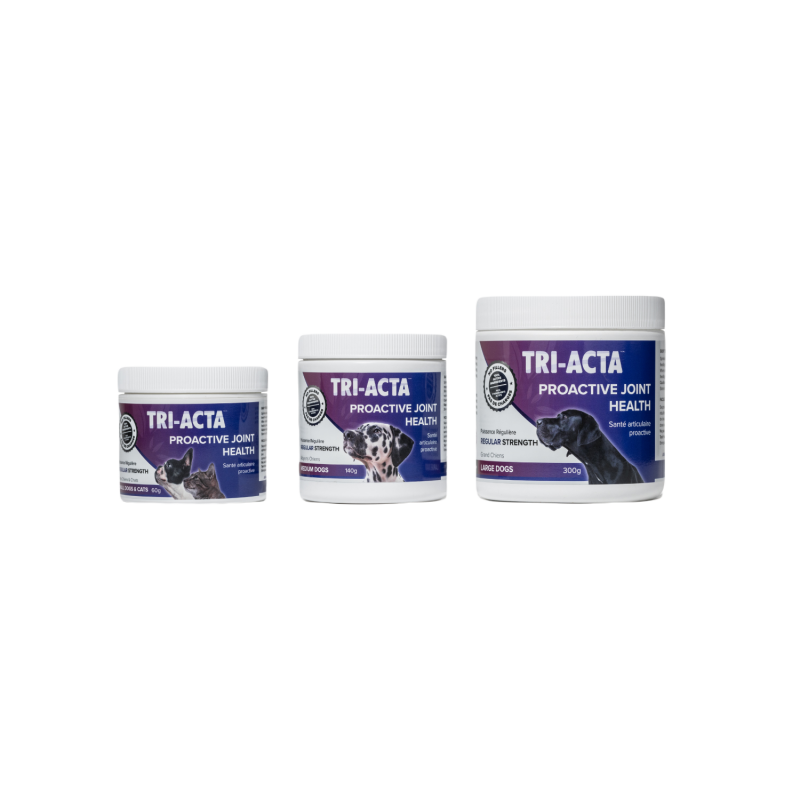
Newsletter Signup
Subscribe to our newsletter to receive the latest news and exclusive offers.
.jpg?height=2000&name=Cliick_Integricare-DISPLAY-REVISEDV2%20(1).jpg)
Proactive & Therapeutic Joint Supplements
When given daily, Integricare joint supplements recover bone and joint injuries faster and help prevent mobility injuries from happening in the first place.

